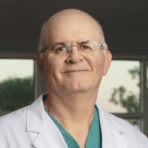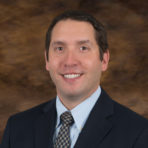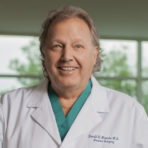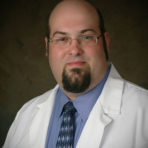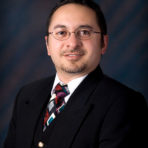The Surgery Center of Cullman is committed to providing patients with high-quality, convenient, low-cost care and is licensed by the State of Alabama and the Accreditation Association of Ambulatory Heath Care Surgery Division (AAAHC). Our highly trained staff provides extraordinary care with a strong sense of commitment to meeting each patient’s needs.

About the Surgery Center of Cullman
The Surgery Center of Cullman opened in December of 2006 by a group of local physicians. These physicians and partners wanted to create a high-quality, convenient and cost-efficient outpatient care option for the community. In 2017, these physicians partnered with Cullman Regional in order to continue to meet the consumer’s growing demand for this type of service now and into the future.
To expedite your check-in process, we need to receive your registration form prior to your procedure date. Click here to pre-register online. If not received, the Pre-Registration Department will be contacting you prior to your date of service.
A nurse will call you the day before your surgery to review special instructions and answer any questions you may have. If you have not received a call by 4 pm the day before your surgery or if you have additional questions, call 256-736-2811.
It is important to follow these guidelines before surgery to prevent delay or cancellations:
Food & Drink: The night before your surgery you may eat a light meal before 11:00 p.m. Do not drink or eat anything after midnight—not even coffee or water. You may brush your teeth, remembering not to swallow anything. Pain patients may have clear liquids –no dairy, cream or fats– six (6) hours prior to your procedure IF you are having sedation.
Alcohol: Do not drink alcohol for at least 12 hours before your arrival.
Smoking/Tobacco: No smoking/tobacco after midnight the night before your surgery.
Makeup, Nail Polish, Jewelry (including body jewelry): Please remove all these items before surgery.
Clothing: Wear loose, casual, comfortable clothing to fit over dressings.
Valuables: Please leave valuables at home.
Notify The Surgery Center & Your Surgeon If:
- You have an elevated temperature, cough, cold, vomiting or diarrhea between your last visit to the surgeon and the day of your surgery.
- You suspect you may be pregnant.
- You are taking: diet pills, aspirin, ibuprofen, blood thinners, or certain herbal medicines. You may need to stop taking these 1-2 weeks before your surgery. You can discuss this with your surgeon.
Preparing for surgery can feel overwhelming or scary if you don’t know what to expect. You may have some unanswered questions and worries that make you feel this way. Knowing what to expect will help you feel less nervous and more in control.
What You Need the Day of the Surgery:
- Information to Bring: Insurance cards, photo ID, Medicare or Medical Assistance information, numbers and addresses.
- Driver: You must plan to have someone drive you home. Do not plan to use taxis or other public transportation.
- Escort: A friend, relative or dedicated caregiver MUST stay with you for 24 hours.
- Legal Guardian: A legal guardian must be in the center AT ALL TIMES for children and dependent adults.
- Care for Children: If you have young children at home for whom you normally care for, plan for someone else to care for them for at least the first 24 hours following your surgery.
- Interpreter: If the patient cannot read, speak English or use sign language, an interpreter is required. If you need assistance arranging for an interpreter, please contact the Scheduling department at 256-736-2811 as soon as possible.
Check-in: When you arrive at our center we ask that you check-in at the registration desk to verify personal, escort and insurance information.
Following Admission: After checking in at our center, you will be brought to the pre-op area where the nurse will do a health interview and prepare you for surgery. You and your family or escort will stay in the room until it is time for your surgery. An anesthesiologist will discuss your anesthesia with you and answer any questions. At the appropriate time you will be escorted to the operating room. During surgery your escort will stay in a waiting area and will rejoin you in the recovery area after your surgery.
Once you are in stable condition, you will be discharged. It is normal to experience sleepiness and dizziness for 12 to 24 hours after surgery.
Post Care: You will receive verbal and written post-surgical care instructions (please follow these instructions). Your escort must be available to discuss and sign these instructions before you will be allowed to go home. If you experience anything unusual after your surgery, please call your surgeon or go to the nearest emergency room. A nurse from our center will call you the day after your surgery to see how you are feeling and to see if you are having any problems.
Transportation: DO NOT PLAN TO DRIVE yourself home or use public transportation after your procedure. A friend or relative or dedicated caregiver MUST stay with you for 24 hours.
Children
We give children the extra care they need in an unfamiliar setting.
Drink: Children may have less than 1 cup (8 oz) of clear liquids up to three hours before their arrival. This includes water, apple juice, soft drinks and Kool-Aid. NO milk or orange juice.
Food: Children must not eat anything for eight hours before their arrival. Please do not allow them to suck on candy or swallow toothpaste before surgery.
Parental Care: We require at least one parent to remain in the center during the surgery and recovery. Please do not bring other young children along. If your child’s surgery is scheduled near noon, you may want to bring a lunch for yourself while you are waiting.
Personal Comforts: Please bring your child’s favorite blanket, stuffed animal or toy for added security.
After Surgery: You will be able to be with your child as soon as he/she is awake and medically safe for transfer after recovery.
Special Needs Patients
We understand that loved ones who depend upon others for daily living require special attention. The following tips, will help make care for these adults easier:
Consent: The legal guardian needs to sign the consent for surgery and anesthesia on or before the day of surgery.
For Admission: Please bring the patient’s recent health history and medication information. Be certain to follow the food and drink rules in the Preparing for Surgery section.
Personal Attendant: As with other patients, special needs patients require a parent, legal guardian or other responsible adult to remain at the center from admission through recovery. A personal attendant will be required to stay with the patient for 24 hours after discharge.
The types of anesthesia provided range from sedation, regional, and general anesthesia. It is important that you follow all preoperative orders in order to reduce risks associated with anesthesia.
What to Expect
- Pain Relief
We offer several types of pain management procedures and medications. The type of anesthesia you receive will be based on the type of surgery being performed. We will be constantly assessing your pain from the time you are admitted until you receive our postoperative call at home using the Visual Analog or Faces Pain Scale (insert image). This allows us to determine if there has been any significant pain increase or decrease.
- Developing Your Anesthesia Plan
Your anesthesiologist or nurse anesthetist will talk to you prior to your surgery. This usually takes place on the day of surgery and includes questions about your medical history, review of any laboratory tests and provide an opportunity for you to ask questions or discuss any concerns you have regarding anesthesia. This allows your anesthesiologist to make a recommended plan specific for you based on your surgical procedure, your general medical condition and your preferences.
- In the Operating Room
Your anesthesiologist is uniquely qualified and personally responsible for directing your anesthetic while in the operating room. A member of the anesthesia care team will monitor your physical status closely and insure all vital functions such as heart rate and rhythm, blood pressure, temperature and breathing are managed properly.
- Recovery after Surgery
Following your surgery, your vital functions will continue to be monitored by nurses. Medications may be given to minimize postoperative pain, nausea and vomiting, as needed. When you are ready, you will be offered something to drink, a family member or friend will be allowed to come and sit with you, and you will be assisted in getting up. Most patients are ready to go home between 1-2 hours after surgery.
– Pain Control or Complications at Home:
You will receive oral and written instructions on how to manage your pain and care for yourself once you arrive home. You will be given a phone number to call if you have questions or concerns after you get home. Be prepared to go home and continue recovery there.
– In general, for the first 24 hours after your anesthesia:
> Do not drink alcohol
> Do not drive a car
> Do not make important decisions
> Family – do not leave the patient alone for the first day
Common side effects include drowsiness, muscle aches, sore throat, headaches, mild nausea which usually decline rapidly in the hours following surgery.
- Resuming Activity
Most patients do not feel up to their usual activities the next day. Plan to take it easy for a few days. The day after surgery, you will be contacted to see how you feel and to see if you are having any problems.
Payment Options
Insurance
We accept most major insurance providers. If you have any billing questions, call 256-736-2811 and ask for our billing department. We must make a copy of each insurance card at the time of registration.
Select Care
Your Select Care copay amount is due on or before your date of service. We will submit your bill directly to Select Care. A bill will be sent to your secondary insurance upon receipt of payment or denial from Select Care. If you have no secondary insurance, a bill will be sent to you for any balance not covered.
Care Credit
We offer CareCredit as a payment option for anyone who qualifies. This is similar to a credit card, but designed for healthcare services and offers little to no interest.
Self-Pay
You will be contacted prior to your surgery with an estimated procedure cost for the facility fee. A down payment equal to ½ of the total estimated amount due is expected the day of your procedure. If you are unable to pay ½ the day of your procedure, you will be asked to complete a financial agreement. A good faith payment should be made and the remaining balance will be divided up into 3 monthly payments so that your account has been resolved with the 90 day time frame.
Prompt Pay Discount
We offer a 10% discount to self-pay patients whose account estimate is paid in full the day of the surgery/procedure.
Cosmetic Surgery & Elective Surgery
Payment in full must be received 10 days prior to surgery.
Cullman Regional Surgery Center Doctors
Frequently Asked Questions
Do I need to visit the center before my surgery date?
- For families with small children, we are happy to schedule a preoperative tour prior to your surgery date.
- Pre-registration: We encourage our patients to register online; however, if you prefer, you may choose to come to the Center before their surgery date to complete paperwork or make payments. All preoperative documentation should be complete before the day of surgery.
What should I wear?
Please wear comfortable clothing. Button-down shirts or blouses are best. Wear comfortable shoes. Leave all jewelry at home, including body-piercing jewelry. If you wear contact lenses, you will probably have to remove them for the surgery, so consider bringing your glasses. If you have to wear your contacts, please bring contact solution and contacts case. Please do not wear any make-up as this can hide certain clinical signs. Please remove all body piercings.
What if I cannot make my appointment?
Please notify the surgeon and the Surgery Center of Cullman at 256-736-2811 as early as possible if you cannot make your scheduled appointment. Early notification can help us better accommodate you and other patients.
May I pre-register for my surgery?
Yes. Click here to register online.
Why must I refrain from eating and/or drinking prior to surgery?
You refrain from eating and/or drinking prior to surgery in order to prevent the risks of aspirating gastric contents during your surgery. This complication is very serious and you need to strictly abide by our recommendations. This has nothing to do with nausea and vomiting after your surgery as some think. Fasting time should be as short as possible before your surgery. You will not improve your safety by not eating or drinking longer than necessary; in fact, at times you may complicate things a bit. Children have different fasting schedules than adults – so please check in the Children and Special Needs Patients section above.
Should I take my usual daily medication?
- Generally, we request that you take your daily medication before leaving home. However, diabetes medication and blood thinners may be stopped prior to surgery. You should be contacted before your surgery leaving no doubts in your mind as to which medications you should take. Please bring all your medications with you.
- People using inhalers must bring them to the Center on the day of surgery.
May I continue my herbal medications?
Herbal medications may have harmful effects on the surgery including your ability to clot or can interfere with anesthesia. We generally request that you stop these medications two weeks before surgery, and ask that you remember to mention these remedies when being asked about medication by your physician.
Who may accompany me?
- Each patient is welcome to bring one person with you. They are welcome to sit with you both prior to surgery and after the surgery if you like.
- For children, often two parents and/or guardians will accompany him or her. We will do our best to accommodate everyone; however, one parent and/or guardian will be permitted into the recovery room at a time.
- Please refrain from bringing young children as guests.
Will I receive sedation before going into the operating room?
Each patient’s care if individualized. This will be discussed with you prior to surgery.
Will I be contacted before my surgery?
Yes. We call each patient before the surgery to gather information that is helpful to us and hopefully answer any of your questions. Preoperative instructions will be given by the nurse who calls you. If you have not received a call by 4 pm the day before your surgery, you may call us directly at 256-736-2811.
Should I bathe and wash my hair before leaving home?
Yes. You can comfortably take a shower, bathe, brush your teeth, etc. Please do not use make up, hair spray, nail polish or toiletries. These may interfere with the anesthesia monitoring and possibly hide clinical signs from the anesthesiologist.
What should I do if I am not feeling well?
If you are not feeling well, please contact your surgeon immediately. During normal business hours, you can call the our staff for advice at 256-736-2811. There are some surgeries which are safer if delayed when you are sick. We need to know specific details to make the decision. Please do not delay in contacting your surgeon or us.
What should I do if I started my menstrual cycle?
This will not affect most surgical procedures. There are a few specific gynecological procedures which may be impacted by menstruation. Call us if you have any questions at 256-736-2811.
What should I do if I believe that I am pregnant?
It is very important for us to be aware of this possibility. Only essential surgery is done on pregnant patients. If there is any doubt please contact us immediately.
May I drive home?
Generally, no; any patient receiving anesthesia should not drive until the next day. A patient receiving sedation for a procedure needs a ride home. Patients will not be allowed to drive, walk or take public transportation after sedation or anesthesia. Please make the appropriate arrangements.
May I speak to my anesthesiologist before the surgery?
All patients will be seen by the anesthesiologist on the day of surgery prior to entering the operating room. You will have plenty of time to ask any questions you may have. If you need to speak to the anesthesiologist before the day of surgery, please call us at 256-736-2811 to schedule a preoperative interview or schedule a time to have your questions answered, or you may email your questions here.
What if I have special needs?
We will make every effort to accommodate any special needs you may have. Please call the Surgery Center in advance so we can properly prepare to make you comfortable and make your day easier.
Should I bring my special needs equipment?
Yes. Please bring any walkers, post-op crutches, hearing aids, etc.
What must I bring with me on the day of surgery?
- Bring case for eyeglasses or contacts
- Bring insurance identification cards, driver’s license, completed billing forms, copayments
- Bring all medication
- Make sure you have a ride home and someone to care for you at home
- Bring a favorite bottle or “sippy cup” for your child
- Wear comfortable, loose fitting clothing
- Leave all jewelry and valuables at home
How will my pain be managed?
Your pain management is very important to us. We will be constantly assessing your pain from the time you are admitted until you receive our postoperative call at home using the Visual Analog or Faces Pain Scale (insert image) Using the results of our communication we will alter the therapy as needed in order to assure your comfort. We use a combination of different modalities to help make you comfortable, from oral medications, intravenous medications, nerve blocks, injection of local anesthetic during the surgery, etc. and prior to the surgery, the management of your pain should be discussed with both your anesthesiologist and surgeon. Please feel free to bring up any concerns or fears you may have. Remember that information on pain management gives you the appropriate expectations and hence a smoother, more comfortable recovery.
May I request what type of anesthesia I will receive?
Yes, in certain situations. Some operations can be performed using a choice of different anesthetic types. Your anesthesiologist will discuss available options with you after reviewing your medical history. Your preference will be discussed so that the most appropriate anesthetic plan is made.
Will I receive any sedatives before surgery?
You and your anesthesiologist will develop your specialized anesthesia care plan.
What are the risks of anesthesia?
All operations and all anesthetics have risks that are dependent upon many factors including type of surgery and the medical condition of the patient. Most patients operated on in surgery centers are of the healthier group of patients, and in these circumstances serious complications, while they can occur, are fortunately very rare.
May I go into the operating room with my child?
There will be circumstances where it is appropriate for a parent to come into the operating room. Studies and experience show that this decision needs to be individualized and discussed between you and your anesthesiologist. There are many situations where other choices are better and possibly even safer.
Billing Frequently Asked Questions
Why am I receiving more than one bill for the same surgery?
There may be a number of separate charges associated with your surgical procedure. You MAY receive charges from several companies.
- Your anesthesiologist for anesthesia.
- Your surgeon’s office – his/her professional fee for performing your surgery.
- Your pathologist – services for tissue specimens removed during surgery requiring further examination.
- An extended home health care service.
What type of credit cards do you accept?
We accept all major credit cards such as Visa, Mastercard, Discover, American Express and CareCredit. You are welcome to visit the CareCredit website at: www.carecredit.com to pre-apply for their services before your date of surgery. WE ARE UNABLE TO ACCEPT CHECKS.
When should I expect my first bill?
We will bill you any balance due after your insurance company has paid your claim. There may be a delay if your insurance company has paid us incorrectly and we have re-submitted your claim for a corrected payment and allowance determination.
Do you charge interest?
No, we do not charge interest.
Are we able to set up a payment plan?
We do ask that all balances are paid in full within 90 days. If you encounter problems paying within the 90 days, please contact our office immediately at 256-736-2811 and ask for our collections department.
What is your credit and payment policy?
- Unless arrangements are made in advance, full payment is due within 90 days of your surgery. Elective and cosmetic surgery procedures must be paid in full prior to your surgery date.
- We strongly encourage you to personally contact your insurance company about your upcoming surgery. It is mandatory that YOU, as the insurance subscriber, confirm that all prior authorization information necessary to your specific policy is completed before your surgery date. You may be penalized by your insurance company if you don’t follow your policy guidelines. You must understand what your benefits cover and how this may affect you financially.
- We will submit insurance claims for you. We may request that your deductible and copay amounts are paid on or before your date of surgery. You will receive a notice from us regarding the amount to pay. Self-pay accounts are asked to pay 50% of the total estimated procedure on or before the date of surgery and to also sign a financial agreement keeping in mind that our balances are due within 90 days.
- If you anticipate difficulty in paying your bill within the 90 day period please let us know immediately.
Office Hours
Monday – Friday: 6 a.m. to 4 p.m.
Location
1403 Wall Street NE
Cullman, AL 35055
Contact
Telephone: 256-736-2811
Fax: 256-736-2589











